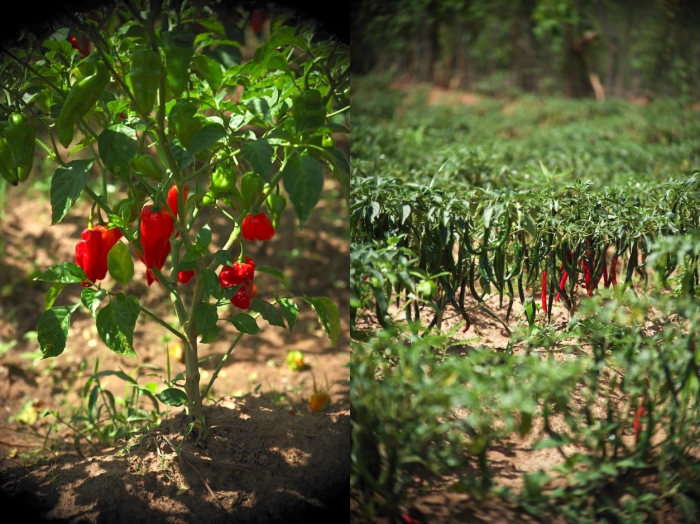
GOPA AFC has been working since 2017 in Ghana in support of the Market Oriented Agricultural Programme North-West (MOAP-NW), which is implemented by GIZ with co-financing from the European Union. The project trains and advises small-scale farmers on recommended environmentally sustainable Good Agricultural Practices (GAP) that also address climate resilience.
MOAP-NW applies a value chain approach, with special attention to high-value crops, with the aim of assisting business-oriented smallholder producers, to satisfy market demand, in terms of quality and quantity and link them to national and international processors and buyers. The targeted value chains are groundnuts, vegetables, rice, mango, soy, sorghum and cashew. MOAP-NW partners with the public extension structures in the districts and private sector initiatives, in order to promote a demand driven approach to agriculture, which understands farming as a business opportunity for the actors along the value chains and opens markets for producers and processors.
The programme has been designed to support the productive use of agricultural infrastructure in north-west Ghana and their maintenance through strong community involvement, to provide capacity building of local authorities and entrepreneurs along entire value chains, as well as to build up service delivery systems for farmers. For sustainability reasons, the project supports inclusive business models that can encourage community and other private investment into infrastructure, production and service provision.
In the field of vegetable production, we have identified chili pepper to be a product that has a high-profit potential and is widely demanded. Hence, with its promotion and support to farmers, household incomes could be increased. Chili pepper has been known to have high market values, both as fresh and dried produce and is used widely by local households, restaurants and food vendors. Also, a relevant export market exists.
Against this background, we have been promoting GAP in chili pepper production of smallholder producers primarily in the dry season, guided by the assumption that in the light of high market prices, producers would maximize profits. However, we soon realized that proper adherence to good agricultural practices was quite a challenge during the rainy season as well, leaving much room to improve production in terms of product quality and quantity. There was a need to intensify our GAP training activities in both seasons.
Our initial activities have proven to be very effective and we are currently rolling out our support to more smallholder farmers with GAPs training and hands-on practical exercises, through demonstration plots and field days in different communities. Expanding the producer base will open market opportunities for more farmers, as buyers will be able to purchase the quantities they need.
The GAP training included nursery establishment and management (thinning out, water management, nursery pest and diseases control and hardening up seedlings), transplanting, fertilization, pruning, pest and disease management as well as harvest and postharvest handling. Apart from these agronomic topics, the issue of farming as a business was also included, focusing on profitability analysis.
Our training activities are organized and supervised by our community support officers, who live within or close to the targeted villages and are readily available for any advice that the smallholder farmers may need. The community support officers work under the guidance of our national long-term advisor in vegetable production and, for certain technical areas, local short-term experts. To date, some 8 demonstration plots have been established in different villages and some 250 farmers trained. Here,
farmers from 5 districts have been introduced to three market-oriented chilli varieties. These include the long chili (Sunny F1), rounded chili (Etna F1) and the small chili (Salmon (OPV)).
Just follow this link for a video about our activities with regard to GAP training in chili pepper production in north-west Ghana.
